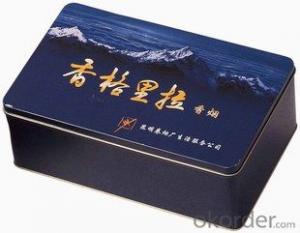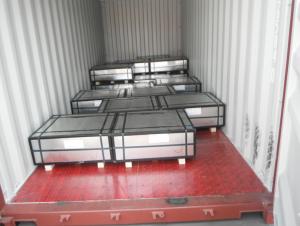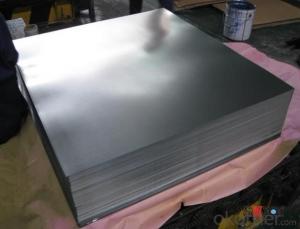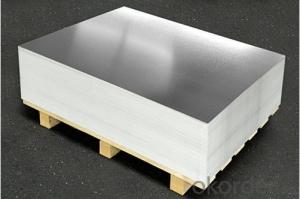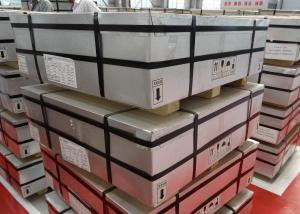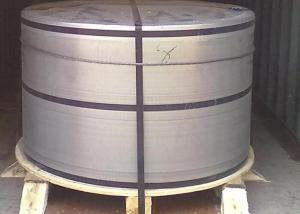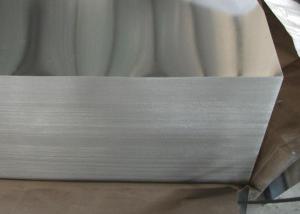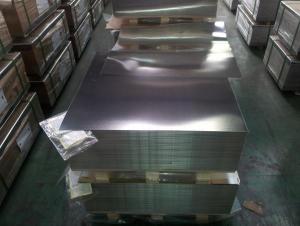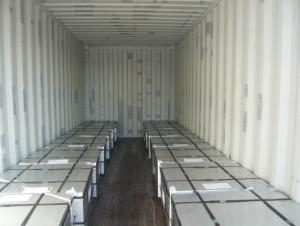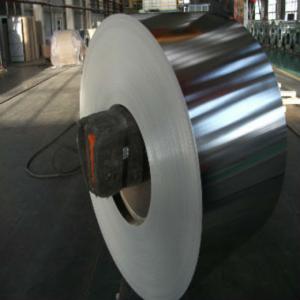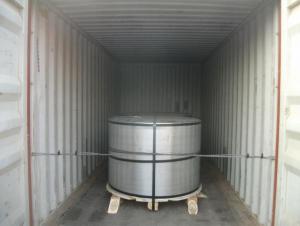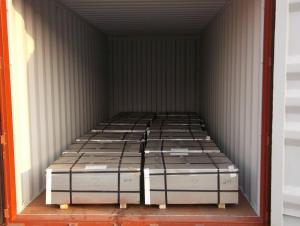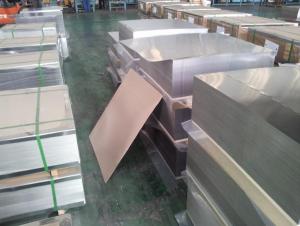Tinplate Sheet, Industrial Usage, Competitive Price, JIS G3303
- Loading Port:
- Tianjin
- Payment Terms:
- TT OR LC
- Min Order Qty:
- 25 m.t.
- Supply Capability:
- 40000 m.t./month
OKorder Service Pledge
OKorder Financial Service
You Might Also Like
1.Usage
Tinplate is widely used for making all types of containers, containing industrial usage such as paint can, oil can, aerosol cans etc., and food cans like milk powder cans, tomato paste can, dry food cans etc.
2. Quality
As a state owned company and a large tinplate supplier in China, our tinplate quality ranks 1st level in China, similar to Bao Steel, Posco etc.
3. Specification
standard: GB/T2520, JIS G3303, DIN EN10202
Material: MR /SPCC
Thickness available: 0.16-0.50MM
Width available: 600~1050MM
Temper grade: T1 – DR8
Tin coating: ordinary 2.8g/2.8g, 5.6g/5.6g and others
Package: sea worthy export package.
Applications: Tin can for chemicals & paint cans, industrial cans, food cans
4. Our factory photo & equipments

5. Our Markets:
now our tinplate has been sold to more than 50 countries, including Europe country, Gulf Area, South American, South Afric etc.
6. Our Overseas Wareouses:
Furthermore, in the year 2014, we have more than 10 overseas warehouses all over the word, located in KSA, UAE, Oman, Russia, Kuwait, Qatar, Oman, Chile, Brazil etc.
7. FAQ
a. what's the annual output?
about 500,000 tons per year.
b. where's the raw matrial from?
our hot rolled coil is purchased from Capital Steel and other state owned mill, with quite good quality.
c. how long is the delivery time?
normally for SPCC about 45~55 days, while 65~75 days for MR material
d. how to control the quality during production process?
inside our workshop, we have MES syestem. It realizes the optimization of the production procedure in the workshop. It could record each step of the whole production procedures, and if some problem appears, factory could easily found and take action, it’s quite helpful to monitor and control the quality.
- Q:Can tinplate be used for agricultural applications?
- Yes, tinplate can be used for agricultural applications. It is commonly used for the packaging of agricultural products such as canned food, seeds, and agricultural chemicals. Tinplate offers protection against moisture, pests, and contamination, making it suitable for preserving and transporting agricultural goods. Additionally, its durability and resistance to corrosion make it a reliable choice for various agricultural uses.
- Q:Can tinplate be used for packaging frozen food?
- Yes, tinplate can be used for packaging frozen food. Tinplate is a type of steel coated with a thin layer of tin, which provides a protective barrier against moisture, oxygen, and other external factors. This makes it an ideal material for packaging frozen food as it helps to maintain the quality and freshness of the product while preventing freezer burn. Additionally, tinplate is also durable and can withstand low temperatures, making it suitable for freezing and storing food items.
- Q:Why tinned fruit cans, some snow wall, and some inner wall does not appear?
- The same is canned fruit, tin cans taste more than glass bottles, why is it better? Because the storage process is completely isolated from the sun, so that it can retain the original flavor of canned fruit.
- Q:Can tinplate be used for solar panel applications?
- Yes, tinplate can be used for solar panel applications. Tinplate is often used as a protective coating for solar panels due to its corrosion resistance and ability to reflect sunlight. It acts as a barrier against moisture and environmental elements, ensuring the durability and longevity of the solar panels. Additionally, tinplate can enhance the overall efficiency of solar panels by reducing heat absorption and improving energy conversion.
- Q:How is tinplate used in the manufacturing of household appliances?
- Tinplate is commonly used in the manufacturing of household appliances as it provides a protective coating to prevent corrosion and enhance the durability of the appliances. It is often used as a primary material for the outer casing, doors, and panels of appliances such as refrigerators, washing machines, and ovens. The tin coating also gives the appliances a smooth and attractive appearance, making it a popular choice in the industry.
- Q:How does tinplate compare to plastic in terms of sustainability?
- Tinplate generally has a higher sustainability profile compared to plastic due to several reasons. Firstly, tinplate is a highly recyclable material, with a recycling rate of around 90%, while plastic recycling rates vary and are generally lower. This means that tinplate is more likely to be reused and diverted from landfills, reducing its environmental impact. Additionally, tinplate production requires significantly less energy and emits fewer greenhouse gases compared to plastic manufacturing. Moreover, tinplate is more durable and has a longer lifespan, making it suitable for multiple uses, whereas plastic is often single-use and contributes to the growing waste problem. Overall, tinplate offers better sustainability prospects in terms of recycling, energy consumption, and durability compared to plastic.
- Q:What is the elongation of tinplate?
- The elongation of tinplate refers to its ability to stretch or deform without breaking or cracking under applied stress. It is a measure of the material's ductility and is typically expressed as a percentage increase in length compared to its original length before deformation.
- Q:How is tinplate affected by different types of dairy products?
- Tinplate, which is a thin steel sheet coated with a layer of tin, can be affected by different types of dairy products due to their varying acidity levels and chemical composition. Dairy products such as milk, cream, and butter, which have a neutral pH, generally do not cause significant reactions with tinplate. However, highly acidic dairy products like yogurt or buttermilk can corrode the tin coating, leading to discoloration or off-flavors in the food. It is important to use proper packaging materials, such as food-grade plastic or glass, for storing and transporting highly acidic dairy products to prevent any unwanted reactions with tinplate.
- Q:Can tinplate be embossed?
- Yes, tinplate can be embossed.
- Q:What are the advantages of using tinplate for promotional items?
- There are several advantages of using tinplate for promotional items. Firstly, tinplate is a durable material that can withstand wear and tear, making it ideal for long-lasting promotional products. Secondly, tinplate is highly customizable, allowing for various shapes, sizes, and designs to be created, enhancing the visual appeal of the promotional items. Additionally, tinplate can be easily printed on, enabling businesses to display their branding and messaging effectively. Lastly, tinplate is eco-friendly as it is recyclable, making it a sustainable choice for businesses concerned about their environmental impact.
1. Manufacturer Overview |
|
|---|---|
| Location | |
| Year Established | |
| Annual Output Value | |
| Main Markets | |
| Company Certifications | |
2. Manufacturer Certificates |
|
|---|---|
| a) Certification Name | |
| Range | |
| Reference | |
| Validity Period | |
3. Manufacturer Capability |
|
|---|---|
| a)Trade Capacity | |
| Nearest Port | |
| Export Percentage | |
| No.of Employees in Trade Department | |
| Language Spoken: | |
| b)Factory Information | |
| Factory Size: | |
| No. of Production Lines | |
| Contract Manufacturing | |
| Product Price Range | |
Send your message to us
Tinplate Sheet, Industrial Usage, Competitive Price, JIS G3303
- Loading Port:
- Tianjin
- Payment Terms:
- TT OR LC
- Min Order Qty:
- 25 m.t.
- Supply Capability:
- 40000 m.t./month
OKorder Service Pledge
OKorder Financial Service
Similar products
New products
Hot products
Hot Searches
Related keywords
